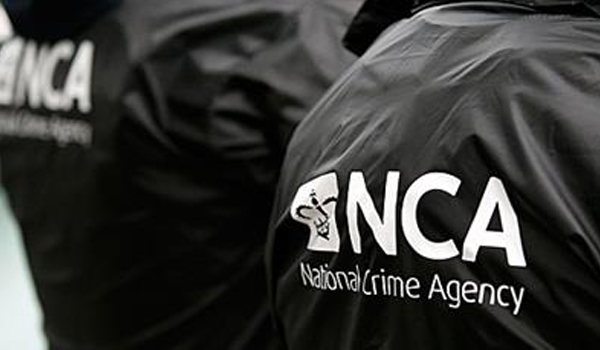NCA must address ‘casual sexism’ and ‘inconsistency’ in sexual misconduct cases, says HMICFRS
Inspectors have found “inconsistency” in misconduct cases at the National Crime Agency (NCA), with first written warnings being given for predatory sexual behaviour and senior staff with “multiple allegations against them” being moved to other departments rather than suspended.
Casual sexism was still tolerated and women had changed career plans to avoid the “toxic male cultures” in operational jobs, said His Majesty’s Inspectorate of Constabulary and Fire and Rescue Services (HMICFRS).
Its report on how effective the NCA is at dealing with corruption found a lack of trust and confidence in the organisation to deal with bad behaviour.
“We found significant differences in outcomes between similar cases within the NCA,” said HMICFRS.
“Cases of proven sexual misconduct generally led to the termination of employment, but not always. We found examples of first written warnings being given for predatory sexual behaviour. We don’t support the rationale for this leniency.”
It added: “We found that most groups we interviewed felt that the inconsistency in outcomes for proven misconduct cases meant they would be reluctant to report improper behaviour at all.
“We found that senior staff under investigation for misconduct were treated differently to those of lower grades. Junior officers will usually be suspended immediately if suspected of sexual misconduct. But we found examples of officers more senior than their victims, with multiple allegations against them, being moved to other departments.”
HMICFRS said this might explain the results of the staff surveys and its interviews that reveal a lack of confidence in reporting issues to senior managers.
“We found that casual sexism was still tolerated,” said the inspectorate.
“We found examples of women still being given certain roles during operational activity because of their gender.
“Women are still subject to sexist comments in the office and on informal WhatsApp groups. These groups include people in leadership roles.
“Worryingly, these individuals aren’t only failing to challenge poor behaviour; in some cases they join in with it.
Inspectors found that there was generally a “positive and inclusive culture” in the NCA, where prejudicial and improper behaviour was not tolerated by colleagues. This was particularly the case in the NCA’s two headquarter sites.
However, there are “pockets of bad behaviour” across the organisation that are known to leaders and staff but have not been tackled, said HMICFRS.
“We were repeatedly told about ‘toxic male cultures’,” it said.
“We found they were tolerated by women in the organisation because women are outnumbered and fear the stigma and repercussions of speaking out.
“We only found these negative cultures in operational teams.
“One experienced investigator who had joined the agency in the last few years told us that they felt ‘it was like stepping back in time to an old-fashioned [police] CID office’ when they joined the team.
“We were told by women that they had changed their career plans to avoid the male cultures in operational jobs.”
HMICFRS said the leniency shown to senior men in sexual misconduct cases, both in outcomes and decisions to suspend, “negatively affect the confidence people have in reporting prejudicial behaviour”.
It added: “We were told of one location that was described as having an ‘old boys’ network’ that included the leadership team.
“This network was felt to be so strong that, if one of ‘their boys’ was accused of improper behaviour, it would be ‘brushed under the carpet’.”
A staff survey showed that women did not feel they would be protected if they reported prejudicial or improper behaviour, and 34 per cent of victims felt they had been punished for reporting.
“We found examples of men receiving written warnings for findings of misconduct and then returning to the team they left,” said HMICFRS.
The NCA Inclusion Culture Strategy shows that the proportion of women and ethnic minorities in its workforce is comparable to the national working population. These same groups, however, are under-represented at senior grades and in operational roles.
“The agency needs to add clear and ambitious targets to its inclusion plans to make sure it improves representation across all areas of its workforce,” said HMICFRS.
Overall, it found investigations into misconduct were conducted to a good standard and the professional standards unit “makes a strong case” when it believes there is a case to answer.
“We were particularly encouraged by the work of the integrated protective security department,” said HMICFRS. “There is a strong sense of purpose in the team and a commitment to tackle corruption and improper behaviour.
“We felt the frustration caused by the inconsistency of outcomes in misconduct panels and with some of the local decisions to deal with poor behaviour.
“Those examples of prejudicial and improper behaviour that we found in some units and teams are concerning.
“In many of the recent high-profile cases involving police officers, there has been an underlying tolerance of unacceptable behaviour, often badged as ‘just banter’.
“The agency must make sure that behaviours like these aren’t tolerated in its own ranks.”
HMICFRS has made 19 recommendations to the NCA, including providing training for all officers and staff, clearly setting out standards of behaviour expected from them. This should include guidance for leaders on their role in applying those standards; the grievance procedure; and the process for reporting misconduct or suspected corruption.
Responding to the report, NCA Director General Graeme Biggar said the findings caused him “deep discomfort”.
He said they were taking “extensive action” to address the report’s findings and had already implemented many of the recommendations.
“The report finds that most of our officers are professional and our culture is generally positive and inclusive,” said Mr Biggar. “But it also identifies pockets of bad behaviour and casual sexism, and that we have not provided the leadership to ensure they are tackled.
“These findings cause me deep discomfort, and I apologise to officers, particularly female officers, that we have let down, through the conduct of their colleagues, through our leadership, or through inconsistencies in our disciplinary outcomes.”


